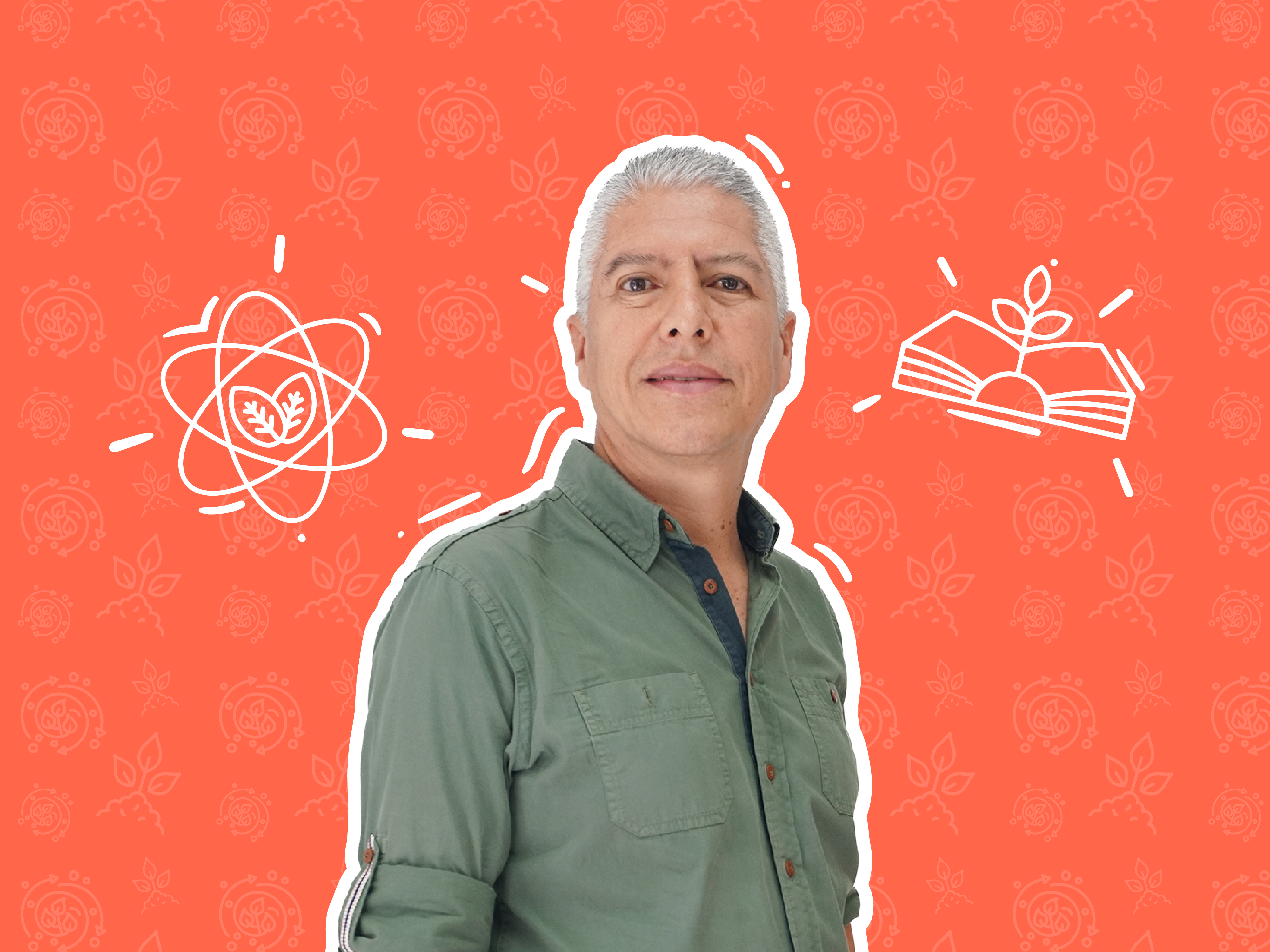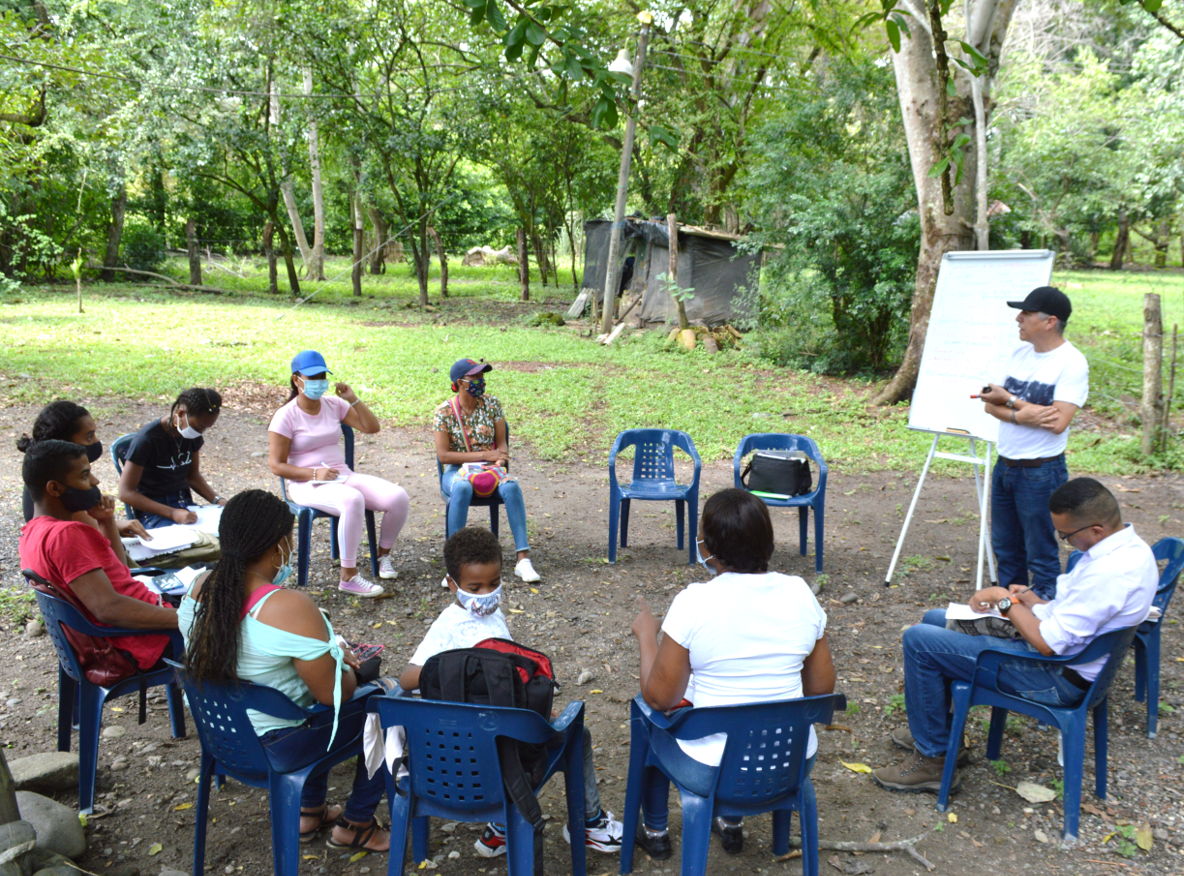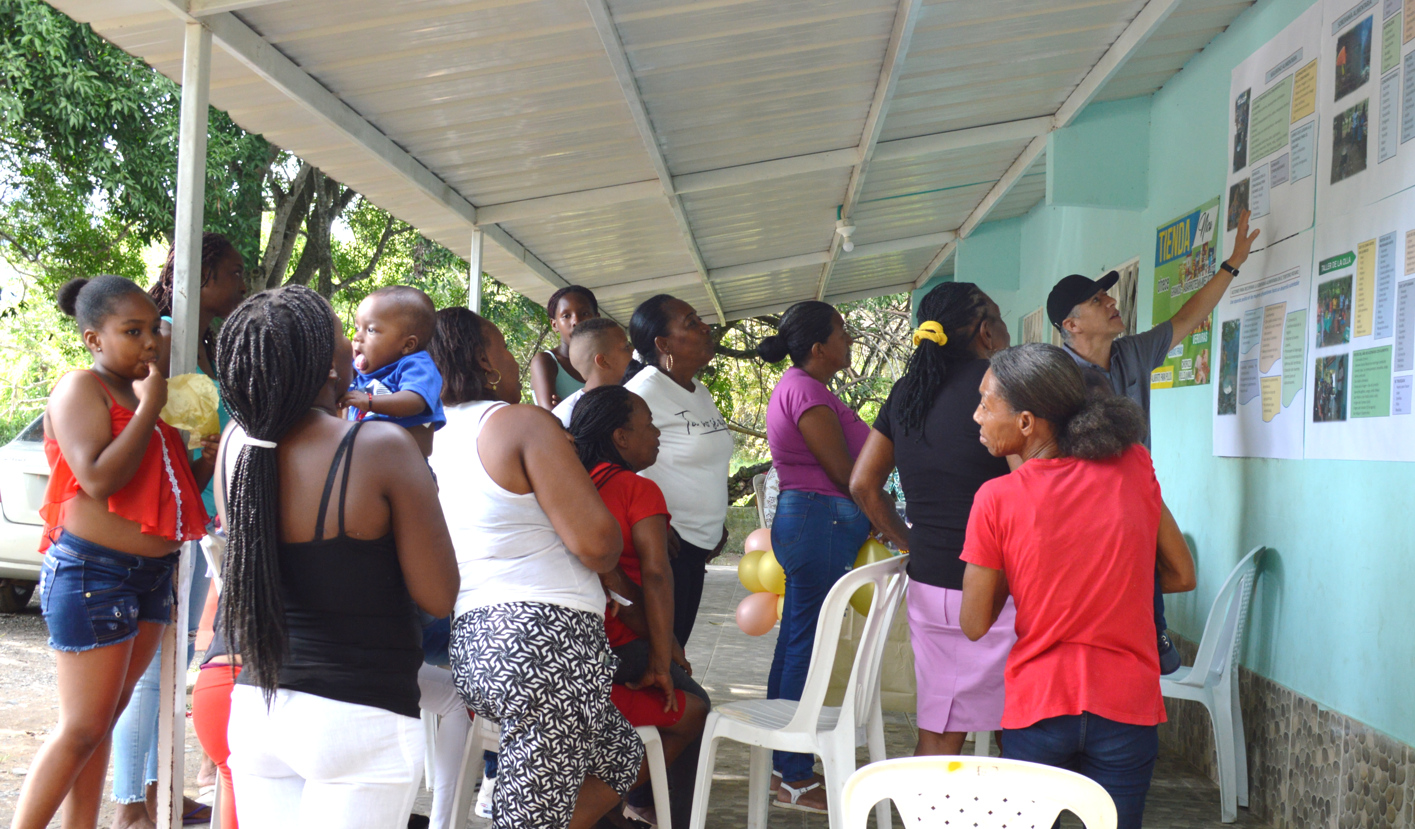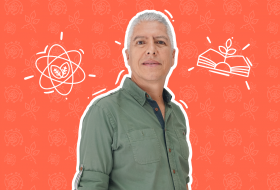News
From the Patía Valley, we continue weaving from the territory! Learn about the academic work of a talented Unicaucano professor
On December 4th, Luis Antonio Rosas Guevara, a Ph.D. candidate and professor in the Department of Intercultural Studies at the Faculty of Humanities and Social Sciences at the Universidad del Cauca, defended his thesis titled “Construction of an integrated socio-ecological territory management model for the sustainable development of Afro-descendant rural women.” This interesting process was supported by women leaders from the Patía Valley. In this article, we invite you to learn more about this story.
Professor Luis Antonio Rosas Guevara’s doctoral thesis in Environmental Sciences focused on developing an integrated socio-ecological territory management model, created in collaboration with rural women from three associations in the Patía Valley, located in the southwestern part of the Cauca Department.

This research addressed the challenge of sustainable development in the region, a place facing accelerated degradation of the tropical dry forest ecosystem (Bs-T) due to extensive livestock farming, reduced terrestrial water flows, increased erosion processes, land degradation, deforestation, and burning—a concerning scenario.
The evaluation panel, composed of experts Daniela García, Diana Marcela Ruiz, and Javier Tobar, highlighted the originality and innovation of the research. They noted that the process demonstrates how, in the face of globalizing capitalist strategies, it is possible to promote changes in local production, safeguard territorial biodiversity, and strengthen the struggles of Afro-descendant women in Patía.
This approach helps recover ancestral knowledge and traditions as alternatives for subsistence and resistance. In summary, the socio-ecological management proposal addresses concrete territorial problems such as water scarcity, food sovereignty, and environmental degradation. It integrates theoretical and methodological contributions from agroecology, biology, anthropology, gender studies, and community knowledge. Thus, it provides a contextualized contribution to the development of Environmental Sciences, reflecting the academic and social commitment of this Unicaucano researcher to a specific reality.

This Ph.D. candidate in Environmental Sciences holds a degree in Education with an Honorific Mention for his research “Comparative Study of Growth, Phenology, and Yield of Common Bean (Phaseolus vulgaris L.) and Cacha Bean (Phaseolus polyanthus G.) in Monoculture.” He is a specialist in Multicultural Education, holds a Master's degree in Interdisciplinary Development Studies (where he received another Honorific Mention for his research “Historical Memory of the Afro-descendant Women of Patía’s Mate-Cutting Work”), and published the book Vivimos del mate with the Universidad del Cauca publishing house. The book focuses on the historical memory of the mate-cutting profession, a trade traditionally performed by black women in Patía.
Professor Luis Antonio is also a researcher in the TULL Group at our Alma Mater, with an impressive background in projects related to food sovereignty, environmental sustainability, and rural development.
He is currently working on the project “Territory, Food, and Life” (2022-2025), which aims to transform food systems in indigenous territories. He has also led research on water management and the historical memory of Afro-descendant women in Patía, both recognized for their impact. With experience in multicultural education, Cauca coffee farming, and native germplasm conservation, his work has earned honors and been funded by national and international organizations.
Additionally, he has held administrative positions at our institution, serving as Head of the Department of Intercultural Studies at the Faculty of Humanities and Social Sciences from 2022 to 2024 and Coordinator of the Master's in Intercultural Studies from 2017 to 2020.

Thus, the Universidad del Cauca is proud to have outstanding professors whose research plays a crucial role in understanding the dynamics of struggle and resistance among Afro-descendant women in Patía.
Without a doubt, this research provides a valuable perspective on identity, territory, and environmental struggles, helping to highlight gaps, inequities, and opportunities in the region.
Moreover, it reaffirms processes of food sovereignty and resistance, in which women play a leading role. These studies not only strengthen academic knowledge but also contribute to the creation of contextualized solutions and the recognition of communities as agents of change in their territories.
Written by: Communications Management Center


